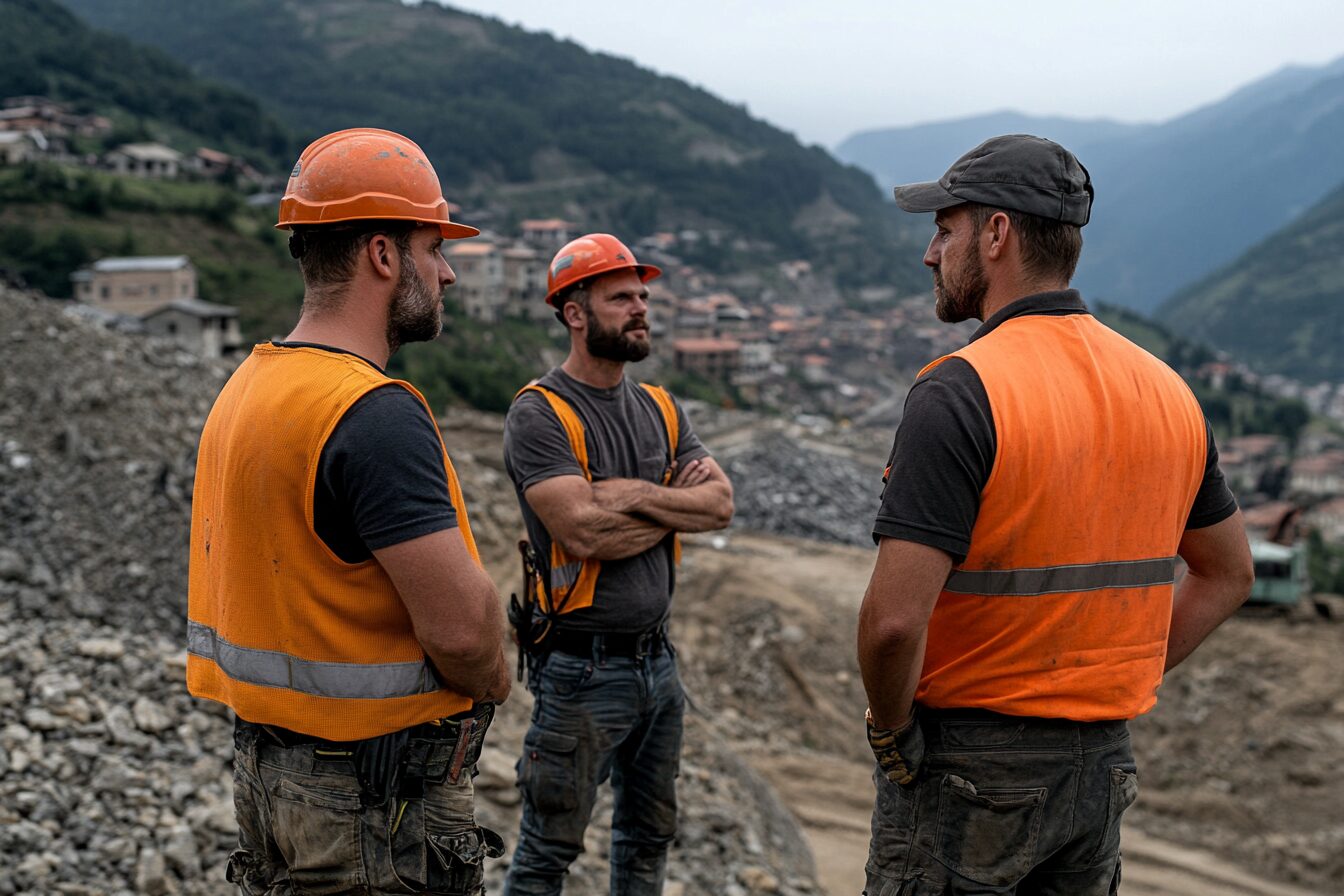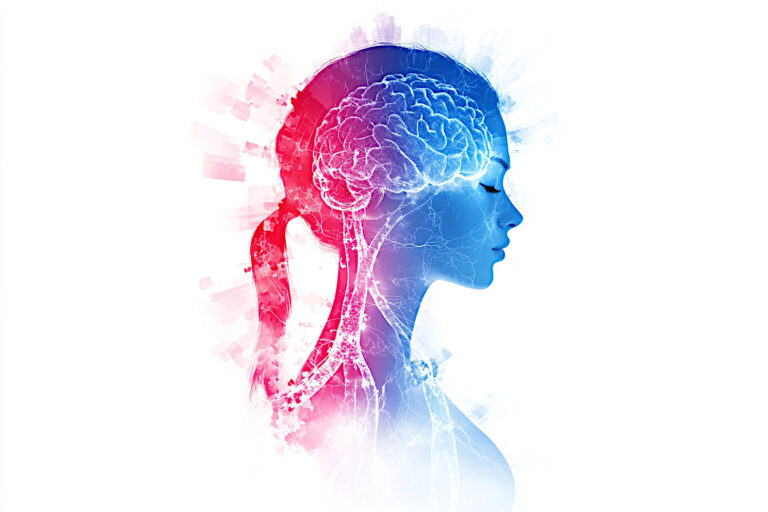Personal Development Isn’t Just For Geeks
Tom wipes the sweat from his forehead as he climbs down from the scaffolding. It’s been another long day on the construction site, and his back is killing him. As he walks to his truck, he thinks about the argument he had with his wife last night. They’ve been snapping at each other more lately, and he can see the strain in their teenage daughter’s eyes. At the hardware store, he overhears two guys talking about some relationship workshop their wives dragged them to. One laughs and says, “That personal development stuff is for office workers and soccer moms. Real men don’t need that touchy-feely nonsense.”
Tom keeps walking, but something stirs inside him. He loves his family more than anything, but he knows he’s not always the husband or father he wants to be. When he’s stressed from work, he shuts down instead of talking. When his daughter needs help with problems, he jumps to quick fixes instead of really listening. Is that “personal development stuff” really not for someone like him?
The answer is a resounding no. Personal development isn’t reserved for executives in suits or suburban book clubs. It’s for everyone who wants stronger relationships, happier families, and more connected communities – regardless of their job, education, or background.
Breaking Down the Barriers
Personal development has an image problem. When most people hear the term, they picture expensive seminars, complicated theories, or self-help gurus speaking to rooms full of business professionals. This stereotype has created invisible barriers that keep many people from pursuing growth opportunities that could transform their relationships and family life.
The truth is, personal development is simply about becoming better at the things that matter most to you. It’s about building stronger connections, changing destructive patterns, and creating the relationships you want. These goals don’t require a college degree or a corner office. They require commitment, practice, and the belief that you deserve meaningful relationships.
Construction workers like Tom can benefit from communication skills, emotional awareness, and conflict resolution techniques. These aren’t “soft skills” – they’re practical tools that help you connect better with your spouse, guide your children through challenges, and build trust in your community.
Stay-at-home parents juggle multiple relationships daily – with their children, spouses, extended family, and other parents. Personal development can help them manage stress, communicate more effectively during conflicts, and model healthy emotional habits for their kids.
Retail workers deal with difficult customers all day, then come home to families who need their attention and energy. Personal development strategies can help them leave work stress at work, be more present with their loved ones, and create boundaries that protect their relationships.
Factory workers operate in demanding environments that can create tension and fatigue. Personal development can help them process work stress in healthy ways, communicate their needs to family members, and stay connected to their communities despite challenging schedules.
The common thread? Every person, regardless of their job or background, has relationships that matter to them. Personal development isn’t about changing who you are – it’s about becoming the partner, parent, and community member you want to be.
Everyone Deserves Strong Relationships
At its core, personal development is about human dignity. It’s about recognizing that every person deserves loving relationships, strong families, and connected communities. This isn’t a privilege reserved for the educated or wealthy – it’s a fundamental human right.
When we suggest that relationship skills are only for certain types of people, we’re implying that others don’t deserve the same opportunities for connection and fulfillment. This mindset is not only wrong but actively harmful. It creates artificial limits that prevent people from building the relationships they crave.
Dignity means recognizing that everyone has something valuable to offer their relationships. The single mother working two jobs has developed incredible patience and problem-solving skills that make her a resourceful parent. The mechanic who diagnoses complex problems has analytical abilities that help him understand family dynamics. The server who handles difficult customers with grace has emotional intelligence that strengthens every relationship she touches.
Dignity means providing equal access to relationship growth opportunities. If communication skills help a therapist connect with clients, they can also help a truck driver connect with his teenage son. If conflict resolution techniques help a mediator resolve disputes, they can also help a nurse navigate family disagreements.
Dignity means respecting different learning styles and relationship needs. Not everyone learns best through talking or abstract concepts. Some people need hands-on experiences, practical examples, and real-world applications. Good personal development should accommodate these differences, not ignore them.

Practical Steps for Real Relationships
The best relationship development strategies are simple, practical, and immediately useful. They don’t require expensive therapy or complicated theories. They just require a willingness to try something new and stick with it.
For the construction worker who wants to strengthen his marriage:
- Practice asking “How was your day?” and really listening to the answer
- Learn to share one thing about his day beyond “It was fine”
- Take a 10-minute walk together after dinner without phones
- Express appreciation for something his wife does each day
For the stay-at-home parent who wants to connect better with their children:
- Practice getting down to their child’s eye level during conversations
- Learn to ask open-ended questions instead of yes/no questions
- Create one-on-one time with each child weekly
- Practice staying calm during tantrums or difficult behavior
For the retail worker who wants to be more present at home:
- Develop a transition ritual between work and home (change clothes, take five deep breaths)
- Practice putting devices away during family time
- Learn to recognize when work stress is affecting home interactions
- Ask family members what they need from you when you get home
For the factory worker who wants to be more involved in their community:
- Start by greeting neighbors when you see them
- Attend one local event per month (school meeting, community gathering, local game)
- Volunteer for something that matters to you, even if it’s just once
- Practice listening to different viewpoints without getting defensive
These aren’t earth-shattering strategies, but they don’t need to be. Small, consistent improvements in how we relate to others compound over time to create significant changes in our relationships.
Making It Accessible and Relevant
The key to successful personal development for everyone is making it accessible and relevant to their actual lives. This means:
Using plain language instead of therapy jargon or academic terminology. Instead of “active listening techniques,” talk about “really paying attention.” Instead of “emotional regulation,” talk about “staying calm when things get tough.”
Focusing on immediate benefits rather than abstract goals. Show how better communication skills can help someone avoid fights with their spouse, not just “improve interpersonal effectiveness.”
Providing flexible options that fit different schedules and budgets. Not everyone can attend weekend workshops or afford expensive programs. Offer alternatives like brief conversations after work, simple practices during daily routines, or informal support groups.
Respecting different backgrounds and experiences. Don’t assume everyone has the same family structure or relationship goals. Create examples and exercises that reflect diverse experiences and challenges.

The Ripple Effect
When personal development becomes accessible to everyone, the ripple effect says the benefits extend far beyond individual relationships. Families become stronger when parents develop better communication skills. Communities become more involved when neighbors take time to understand each other. Children grow up healthier when they see adults with emotional intelligence and handling conflicts peacefully.
Consider Maria, a house cleaner who decided to improve her parenting skills after struggling with her teenage son’s anger. She started with basic classes at the local community center and slowly got better results. Today, her son is doing well in school, and their relationship has never been stronger. But her success didn’t just change her family – other parents in her neighborhood to went to get similar help.
Or think about James, a warehouse worker who learned about dealing with problems after repeated arguments with his brother. He started using these skills at family affairs, and improved relationships with his extended family. Eventually, he became the person others turned to when family conflicts arose. His improved communication skills made every family get-together more pleasant and helped relatives feel closer with each other.
Your Journey Starts Now
Personal development isn’t about becoming someone you’re not. It’s about becoming more of who you already are in your relationships. It’s about recognizing your present strengths as a partner, parent, or community member while addressing areas where you want to grow.
You don’t need a degree, a high-paying job, or a fancy title to start. You just need the belief that you deserve strong relationships and the commitment to take small steps forward.
Start simple. Pick one relationship where you’d like to improve. It might be with your spouse, your children, your parents, or your neighbors. Choose something that matters to you and your happiness.
Find resources that fit your learning style and schedule. This might be books from the library, free online resources, community center classes, or conversations with people whose relationships you admire.
Take action, even if it’s small. Listen more carefully for 15 minutes a day. Practice one new communication skill each week. Have one meaningful conversation with someone you care about.
Be patient with yourself. Relationship development is a journey, not a destination. There will be setbacks and challenges, but every step forward strengthens your connections.
Remember that you deserve the same opportunities for love, connection, and fulfillment as anyone else. Your background, job, or education level doesn’t determine your capacity for meaningful relationships. Your willingness to grow does.
Personal development isn’t just for geeks, executives, or people with fancy degrees. It’s for anyone who believes their relationships can become stronger than they are today. That includes you.
The only question is: which relationship will you strengthen first?




